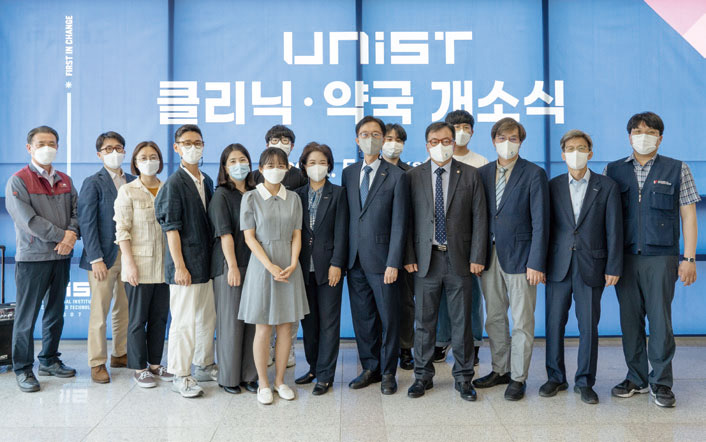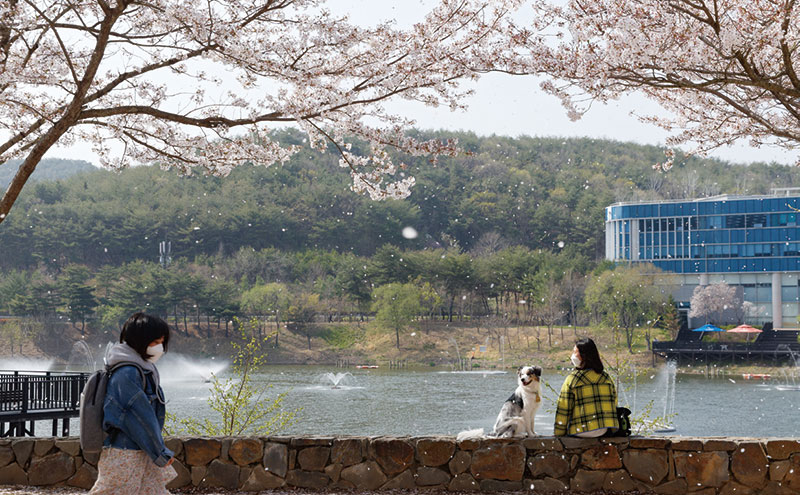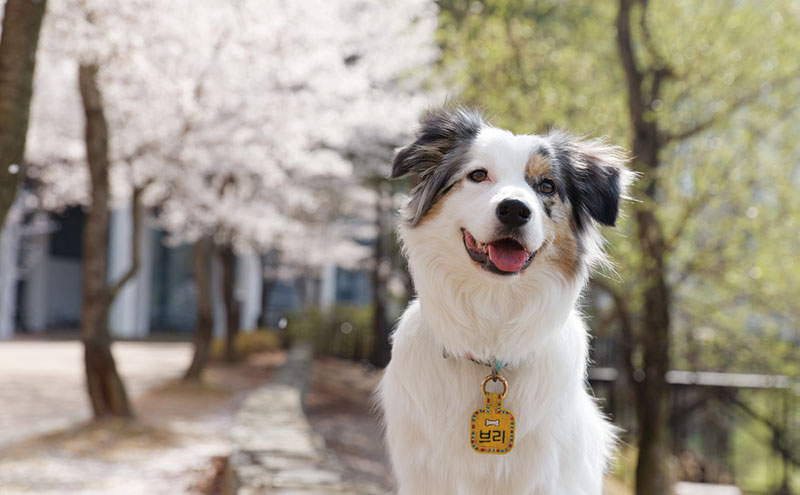
- ZOOM IN
- UNIST Clinic
본문영역
UNIST Clinic,
Aims to Provide
High-quality Medical Services
The UNIST Clinic was established to provide UNIST members with high-quality medical services on campus to allow them to focus on their research and studies with peace of mind.
Aims to Provide
High-quality Medical Services
A safer, more and convenient campus
UNIST boasts a clinic and a pharmacy that were built especially for its members. The UNIST Clinic was established to provide UNIST members with high-quality medical services on campus so as to allow them to focus on their research and studies free from health concerns. Located at the entrance to the Indoor Gymnasium on the first floor (#205) of the UNIST Sports Center, the CLINIC is staffed by a family medicine specialist and is open from 9 a.m. to 6 p.m. UNIST members and their immediate family can use the clinic, which was built to provide healthcare to UNIST members in accordance with the Medical Service Act, Article 35. Thus, whenever immediate family members wish to use the clinic, they must present proof of their family relationship.
The UNIST Clinic is scheduled to provide three specialized medical services. UNIST established its affiliated medical center in 2016 and began providing neuropsychiatry services, and later introduced family medicine services. It is plans to operate ENT clinic services in cooperation with the Dongnam Institute of Radiological & Medical Sciences (DIRAMS) in the future.
UNIST President Lee Yong-hoon said, “Our members can receive high-quality medical services on campus, thus allowing them to focus on their research and studies with peace of mind. The opening of the UNIST Clinic and Pharmacy is an important step toward making our campus even safer and more convenient.”
Since its foundation, UNIST has established a health care center to address the physical and mental health concerns of students and faculty, and is operating a health service room and a counseling room. With the opening of the affiliated clinic, which includes neuropsychiatry and the family medicine, in 2016, UNIST established a system of cooperation between specialists and counselors.
이용대상
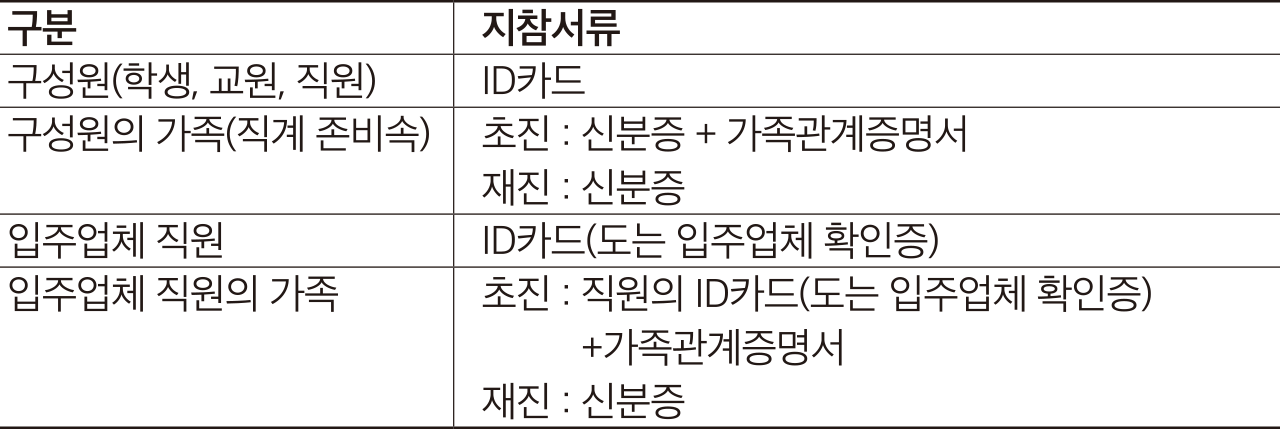
이용방법

진료시간 안내
평일 9:00 ~ 18:00 (점심시간: 13:00~14:00)
*매주 목요일은 휴진
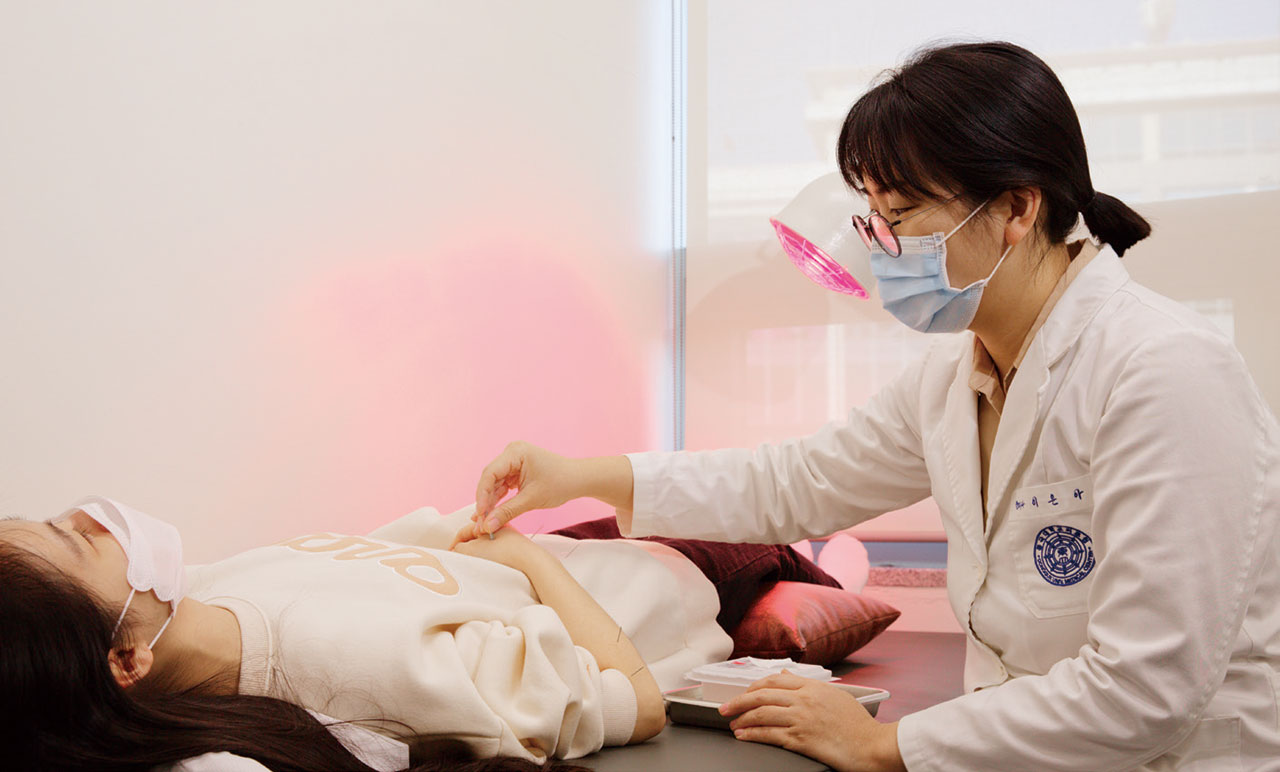
Hello, Bree!
Meet UNIST Health Care Center’s therapy dog!
‘Bree’, the canine assistant of the UNIST Health Care Center’s animal-assisted psychotherapy service, is very popular among students. Lee Yoo-gyeong, Part Leader of the Health Care Center, told us all about Bree.
Can you explain to us how Bree came to the UNIST Health Care Center as a therapy dog?
A. __ From 2018 to 2019, when we commissioned the animal-assisted therapy program from an external institution, we received many positive responses from our students, but the COVID-19 made it difficult to continue running the service. Also, students who lived in isolation due to the pandemic suffered from deepening depression, anxiety and loneliness. Just around that time, I received Bree as a pet, and we discussed the various advantages, such as cost effectiveness, of teaching Bree to become a therapy dog and running the animal-assisted therapy directly at the center. To adapt to the environment, Bree often accompanied me to the center from the third or fourth month, and went to the training center at weekends. In March 2022, Bree was certified as a therapy animal by the Association of Animal Assisted Psychotherapy, and ever since then Bree has been working officially at the Health Care Center.
The UNIST Health Care Center provides a variety of programs. Can you tell us why the animal-assisted therapy involving interactions with Bree is so popular among students?
A. __ I think dogs are creatures that you have no choice but to love unconditionally. Students who come from other regions and find it hard to adapt to campus life at UNIST are comforted by Bree, who welcomes and likes them, and they overcome their homesickness thanks to Bree. In particular, students who had a dog back home sometimes think of their own dog they’re with Bree. Many people suffered from loneliness and feelings of isolation as communication between people decreased during the COVID-19 pandemic, but I think Bree served as a medium for positive changes as people gathered around him and laughed more often than before. Everyone has the desire for contact and communication with others and to be accepted, and since Bree has become an object with which people can safely experience those desires, they are able to form an attachment with him very easily.
Please tell us about some of the changes experienced by students who formed an emotional connection with Bree?
A. __ There was a student who had a hard time visiting the counseling room regularly due to severe depression. However, as the student developed an attachment to Bree, the counseling sessions were held on days when Bree went to work, and the student’s counseling attendance rate consequently improved. The student came earlier than the counseling appointment time to play and spend time with Bree, and remained with him even after the counseling session, and began to become more stable. There was another student who also suffered from severe depression and rarely engaged in any form of outside activity. As that student started taking walks with Bree, the student naturally started talking to other people. Through Bree, the student made new friends, and the radius of the student’s life and interpersonal range broadened. I was very moved by the fact that students opened their hearts to the therapy dog and liked being with him a lot more than I expected, and that it brought them various changes and experiences.
Lastly, could you please say a few words for the UNIST students who like Bree!
A. __ As animal-assisted psychotherapy is still an unfamiliar field in Korea, and if there was no interest or response from UNIST members, I think that it would have been difficult to run the program as well as it is being run now. I believe that therapy is not a one-way process, but rather a two-way one. There are many people who say that Bree reduces stress and makes them feel happy. I believe that if Bree could speak, he would say the same thing about them. I hope that people can laugh, chat, and have a lot of fun and happy times with Bree. And I will continue to work hard to run the therapy program as well as possible.
